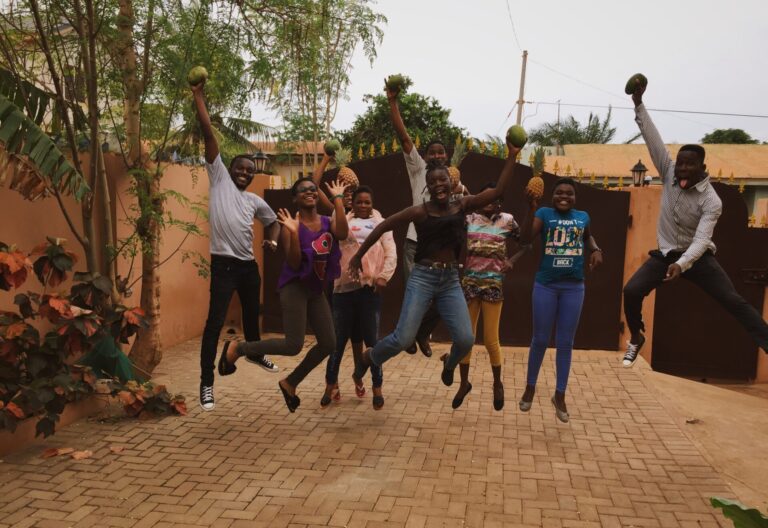Sustainable growth, meaningful partnerships and economic empowerment
A 200,000 euro matching grant from the Business Partnership Facility, an initiative of the King Baudouin Foundation, has enabled one young Ghanaian company to scale up their dried fruit processing business, creating employment and showcasing new agricultural practices in the process.
Yvette Tetteh and Emmanuel Ampadu launched their dried fruit business in 2018. Since the beginning, they’ve been committed to creating partnerships and sharing expertise, contacts and knowledge with their peers. Their vision is much wider than simply providing jobs.
“Our ethos is mutual development and growth. We want to give people the economic means for self-determination,” Yvette says. “We focus a lot on creating work, but we also want to see people develop broadly. And so we are very open. Collaboration and mutual aid have been so essential and beneficial, both for us but also in general, in the young Ghanaian agribusiness sphere. I think we have a really good community here.”
Five years after its launch, Pure & Just continues to grow, and the grant from the BPF is allowing the duo to put some of their ambitious plans into action.
The company now has a 600 square metre processing facility, which has enabled them to scale up production for export. They have also been able to make a downpayment on new machinery, and to unlock further funding. A recently acquired 2-acre demonstration farm will allow them to showcase new, sustainable pineapple growing techniques to the farmers they work with.
“What we wanted to do with starting this business was two things,” Yvette explains. “Create more economic opportunities along the value chain, and improve the image of agriculture and agribusiness. Agriculture has become a kind of old man’s game, where either you are a poor, rural farmer, or you’re an industrial businessman farmer, both of which are very specific, exclusionary identities. We wanted to expand the idea of how you can participate productively in agribusiness.”
Circularity is another important element to the business, not only to maximise value from raw materials and keep emissions to a minimum, but also to bring the best possible value to the local market.
“We started in the local market, developing and refining our production processes and the business, and now we’re looking to export to get the scale we need to grow,” Yvette says. Their vision is to make enough profit from exports to allow the company to serve the local market with low-cost, healthy food on a large scale.
Currently, exports are about 10% of the business, but Yvette and her partner hope to push this to 70%, to allow them to achieve their social and environmental goals. “We don’t want to do ‘business as usual’,” she says. “We want to look at different styles of ownership. I have long been interested in cooperatives or worker-owned businesses, so we need to understand whether that makes sense in our local context.”
While employment has seasonal fluctuations, the team, based in Accra, continues to grow on both the production and management side. The two founders have come a long way since the earliest days of the business.
“It’s always funny to think back to the first days when both of us were literally cutting the fruit ourselves,” recalls Yvette. “I would go in my Mom’s 4×4 to the farm to pick up fruit and then we would cut it together in a rented facility.”
Today, with the BPF as a catalyst, the success of Pure & Just shows how innovation and vision can create real value for communities, economies and the environment.


